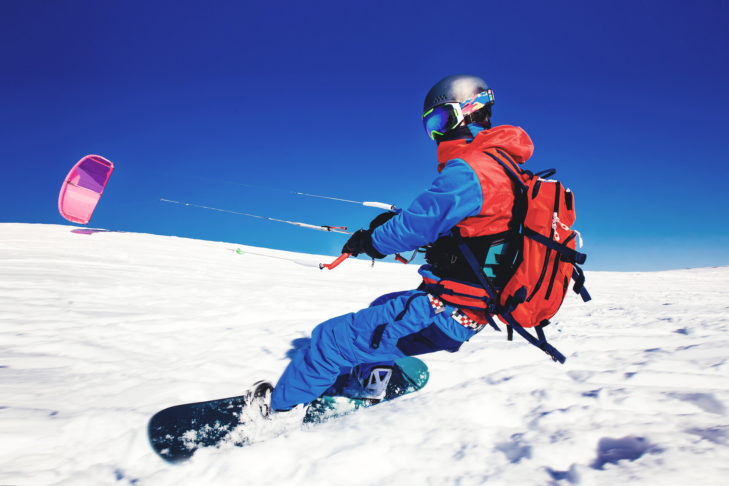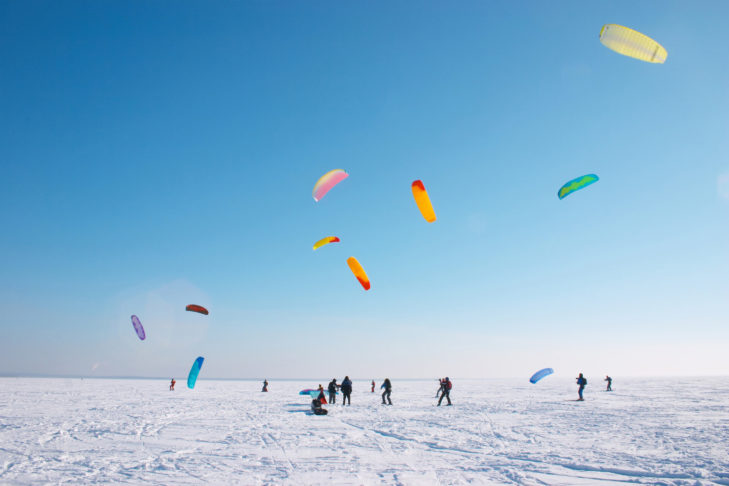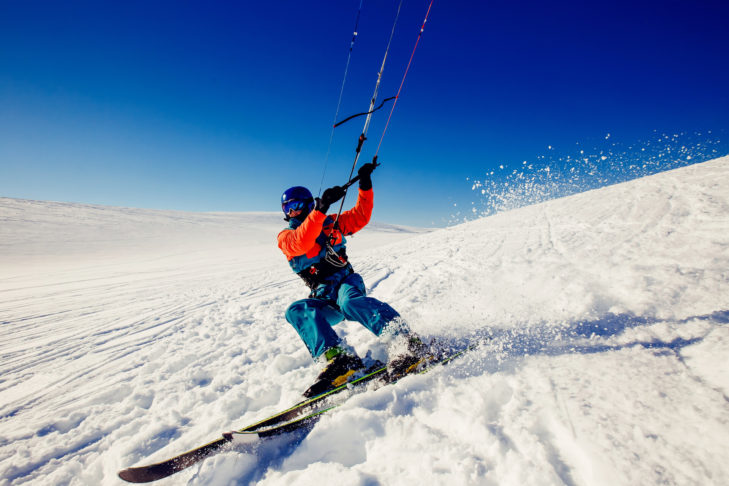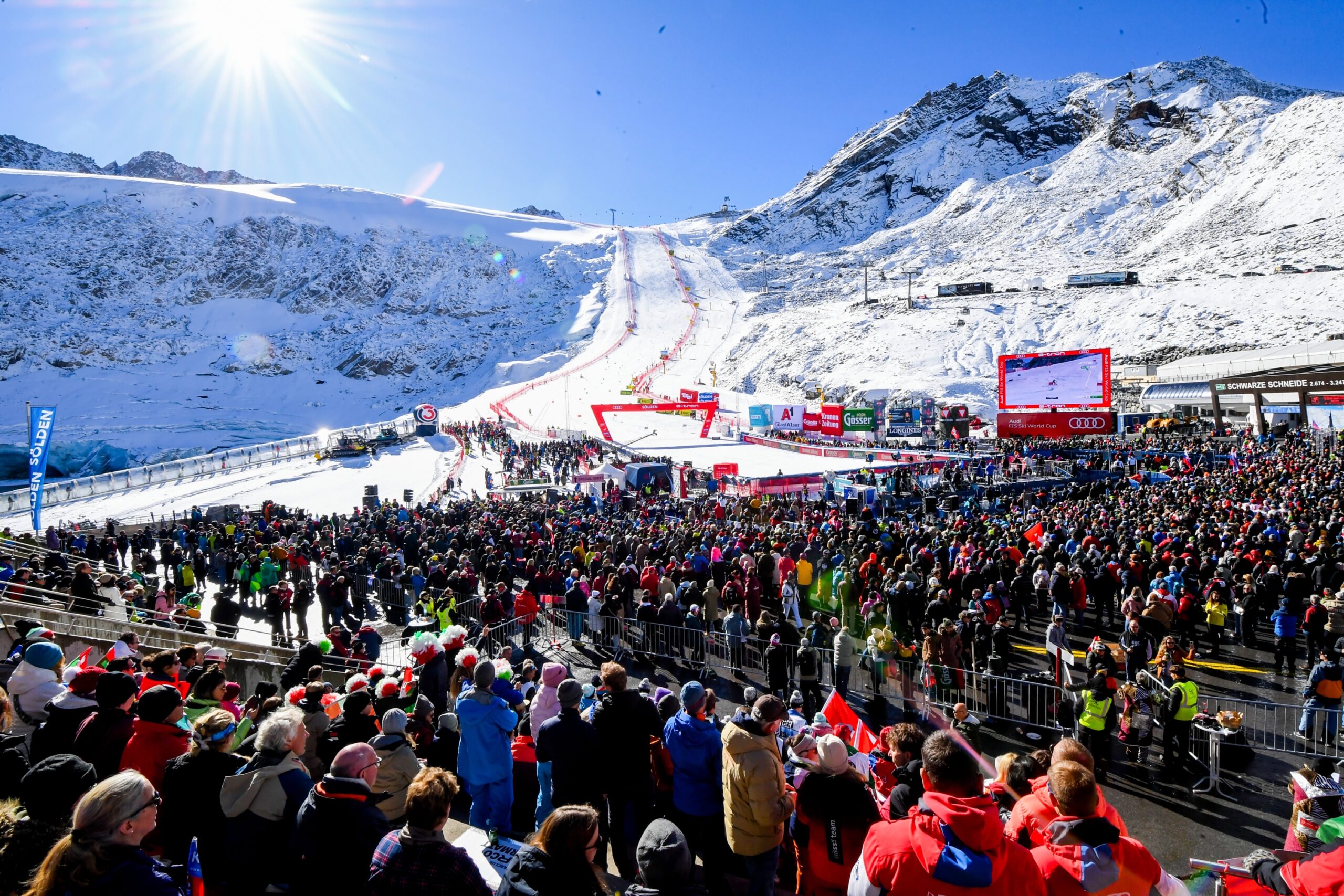Why stick to the classic way of skiing or snowboarding when you’re already an experienced skier or snowboarder? Why not try something new like snowkiting? This sport is extremely challenging for winter sports fans, but it’s also great fun and allows you to experience skiing or snowboarding from a whole new perspective. In this article, SnowTrex shares some facts about snowkiting.
This is snowkiting
Higher, faster, further – these are the things that are associated with snowkiting. What makes snowkiting so special is that you let yourself be pulled onto your skis or snowboard by a large stunt kite called a “power kite” and cruise for miles through untouched powder snow. You have the possibility to reach sensational jump heights and distances at an incredible speed and still make gentle landings. Powered by wind energy, you can glide gently over snow-covered powder snow surfaces, and in corresponding regions, you can even reach untouched areas which is usually only possible by helicopter or on a ski tour. Compared to kiting on the water, snowkiting offers the great advantage that you always have solid ground under your feet and you can get up again easily after the wind has knocked you down.
Snowkiting equipment
Snowkiting equipment mainly includes skis, snowblades or a snowboard and a special glider (the power kite). Skis are recommended for beginners, as they give better grip and allow you to move around more easily. Professionals can also try their hand at snowboarding. The glider is usually attached to the hip by a strap and is steered with a bar like in water kiting. Apart from this special equipment, the usual winter sports accessories are also included, of course: ski clothing, gloves, ski goggles, ski helmet and, because of the jumping possibilities, ideally a back protector.
Snowkiting disciplines
As with other sports, snowkiting has different disciplines. With “Freestyle”, you let yourself be pulled up by the kite and show your tricks in the air. With “Race”, you have to run a course as quickly and expertly as possible. In this discipline, speeds of over 100 km/h are reached. “Jumping” is the king discipline in snowkiting. Professional kiters jump distances of up to 200 m and heights of 20 m, while landing rather gently thanks to the power kite.
Snowkiting locations
Snowkiting is now offered in several areas within and outside of Europe. Snowkiting locations in Europe include the area around Lake Silvaplana in the Swiss Engadine and the area around Lake Reschen in the Italian Vinschgau. Other places include Obertauern, Zell am See and Achensee in Tyrol.
Conclusion
Snowkiting is a winter sports experience of a very special kind! It is recommended to all winter sportsmen who are looking for new challenges as well as enthusiastic water sportsmen who want to find a suitable alternative for the winter. This winter sport undoubtedly offers unlimited possibilities. The basic prerequisite is, of course, sufficient wind.
Fancy even more fun sports in the snow?
FAQs about snowkiting
What is snowkiting?
When snowkiting, you let yourself be pulled along the snow by a large stunt kite (the power kite) while on skis or a snowboard with the help of wind power.
What equipment is needed for snowkiting?
You need skis, snowblades or a snowboard as well as a power kite, which is fastened to the hip with a strap and controlled by a bar. Furthermore, you will also need the appropriate winter sports clothing including a ski helmet and goggles.
Which snowkiting disciplines are there?
Freestyle, race and jumping. In freestyle, the tricks are performed in the air, in race it’s all about speed, in jumping it’s all about height and distance.
Where can I go snowkiting?
Locations include Obertauern, Zell am See and Achensee in Austria, as well as the Engadine in Switzerland and Vinschgau in Italy.






